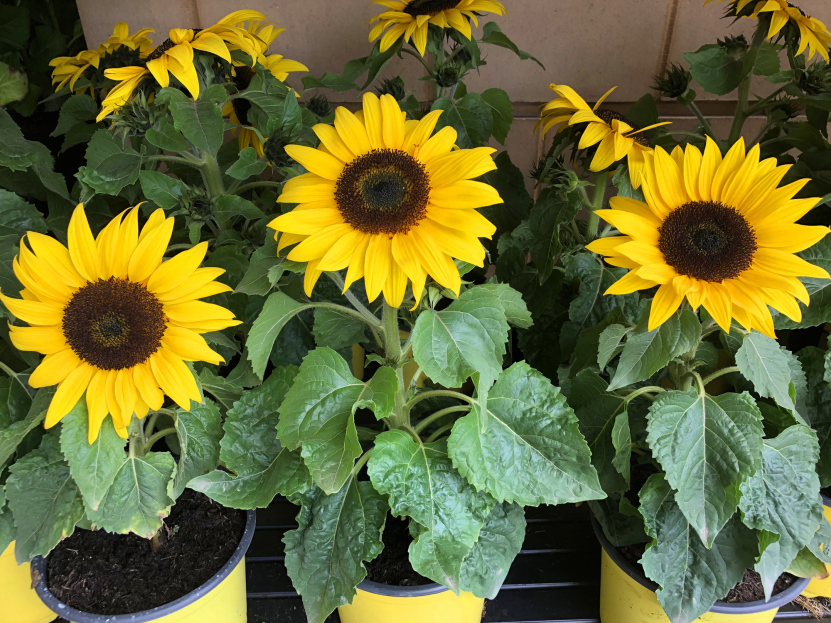
Sunflowers, known for their cheerful, bright blooms, are not just for outdoor gardens. Dwarf varieties can thrive indoors as houseplants, bringing a sunny touch to your home. With proper care, you can enjoy the beauty of these vibrant flowers year-round. Here’s how to care for sunflower houseplants.
Sunflowers love sunlight! Place your houseplant in a location where it can receive 6-8 hours of bright, direct sunlight daily. A south-facing window is ideal. If natural light is limited, supplement with a grow light to ensure the plant gets the energy it needs to thrive.
Sunflowers prefer consistently moist soil but don’t tolerate overwatering. Water your plant when the top inch of soil feels dry to the touch. Ensure the pot has good drainage to prevent water from sitting at the bottom, which can lead to root rot. During the growing season, they may need more frequent watering due to their fast growth.
Use a well-draining potting mix rich in nutrients to support the sunflower’s growth. Adding compost or organic matter can provide an extra boost. A mix designed for flowering plants works well for sunflowers.
Sunflowers thrive in warm temperatures between 65-75°F (18-24°C). They prefer moderate humidity levels and do well in typical indoor conditions. Avoid placing your plant near cold drafts or air conditioning vents, as sudden temperature changes can stress the plant.
Feed your sunflower houseplant with a balanced, water-soluble fertilizer every two weeks during the growing season. Choose a fertilizer with a slightly higher phosphorus content to promote blooming. Be cautious not to over-fertilize your plant, as this can lead to excessive foliage growth at the expense of flowers.
Pruning is minimal for sunflowers. Remove spent blooms to encourage the plant to focus its energy on producing new flowers. Trim any yellowing or damaged leaves to keep the plant healthy and looking its best.
Sunflowers can grow tall, even in dwarf varieties. If your plant begins to lean or becomes top-heavy, use a small stake or bamboo stick to provide support. Tie the stem gently with a soft string or plant tie to avoid damaging it.
Sunflowers are generally non-toxic to pets, making them a safe choice for homes with curious cats or dogs. However, it’s best to keep the plant out of reach to prevent pets from chewing on the leaves or flowers.